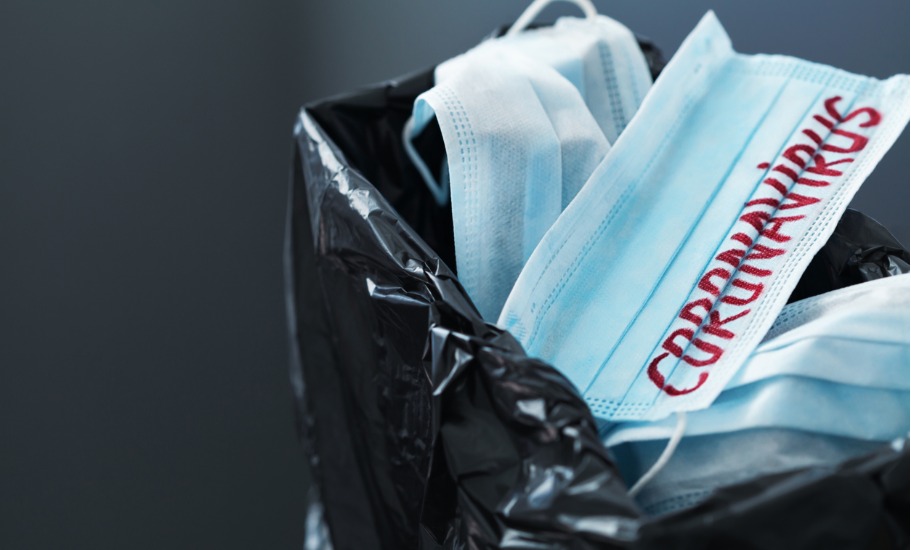
Varsity researchers develop smart dustbin for contactless collection
Researchers at Punjab’s Lovely Professional University have developed an interactive dustbin that can be installed in hospitals and medical facilities. The researchers said it follows voice commands and moves on predefined paths autonomously inside a controlled environment.

In a bid to create a safer environment for frontline workers dealing with COVID-19 waste, researchers at Punjab’s Lovely Professional University (LPU) have developed an interactive dustbin that can be installed in hospitals and medical facilities.
The researchers at LPU said the dustbin, called Ally, follows voice commands and moves on predefined paths autonomously inside a controlled environment. It is three feet tall and 1.5 feet wide, according to news agency PTI.
The smart container performs contactless collection by opening its flap automatically, said the researchers. A sensory system checks the current status, or level of the dustbin, and initiates the disposal procedure once it is filled up to a predefined threshold, they explained.
According to the researchers, Ally can move to the disposal centre autonomously, dispose the waste and get ready on its own for reuse.
Related news: Waste wars: Hospitals need to manage biomedical trash
“In the current situation, a smart dustbin can play a crucial role in collecting waste and leftovers, especially from sensitive areas like quarantined rooms, where appointing a human worker for waste collection and disposal may expose them to infection,” Lovi Raj Gupta, executive dean, Science and Technology, LPU told PTI.
“Ally can be easily summoned using a voice command. For example, if the medical staff wants some garbage to be collected, they just need to say, ‘Ally, come to bed number 18’,” Gupta explained.
He noted that the dustbin responds immediately to the voice command and moves to the respective place using its indoor mapping algorithm. After collecting garbage, the dustbin returns to the predefined home position on its own.
The researchers have used Raspberry Pi — a credit-card sized small computer — and Atmega 2560, a low-power microcontroller in the dustbin.
The Word Health Organisation (WHO) recommends that best practices for safely managing health care waste should be followed, including assigning responsibility and sufficient human and material resources to dispose of such wastes safely.
However, there is no evidence that direct, unprotected human contact during the handling of healthcare waste has resulted in the transmission of the COVID-19 virus, WHO said.
Related news: Why India is losing the biomedical waste battle?
Ally has been conceptualised and developed under the aegis of the USD one million fund set up by LPU to help combat the outbreak of COVID-19, the researchers said.
The research team, including BTech third year students Prabin Kumar Das, Vanka Vinaya Kumar, and KM Vaishnavi Gupta, along with Professors Rajesh Singh and Anita Gehlot, said their prototype has successfully conducted its trials within the university.
The prototype costs ₹20,000, but the team is now looking for industrial partners for its commercialisation and expects the price to drop by almost 25 per cent.
The final product is expected to be ready for deployment within two months, after getting industrial partners, they said.
(With inputs from agencies)


